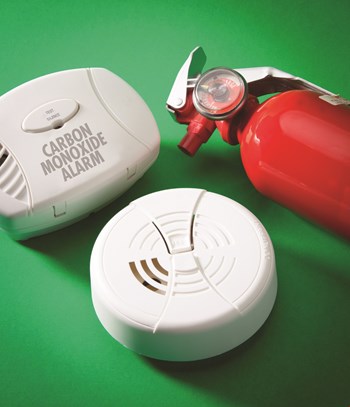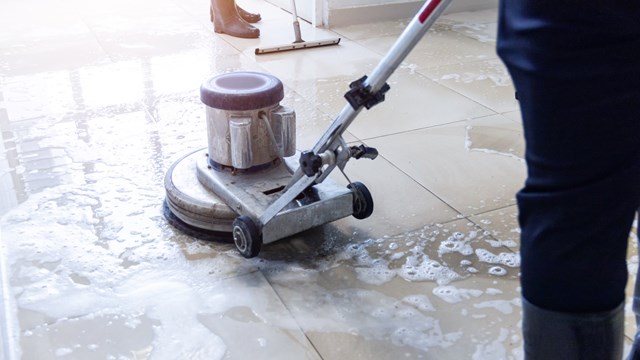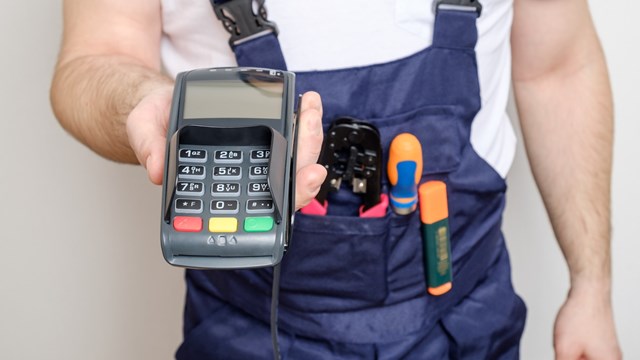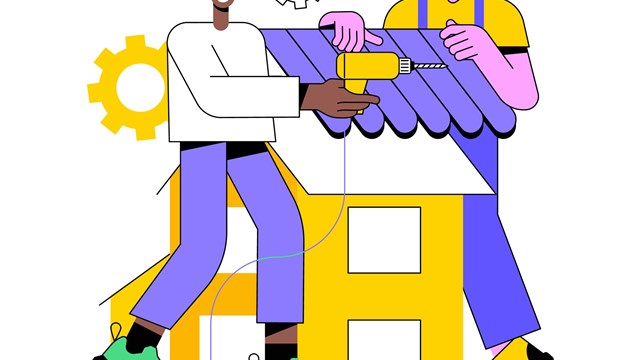
There are certain perils—fires, major weather events, and so forth—that announce themselves clearly; others are more subtle, if no less hazardous. Things like gas leaks, electrical shorts and surges, and water leaks may not be as dramatic as a hurricane, but the damage they can cause can be staggeringly expensive. Let’s look at how residents, managers and building staff can recognize the signs of these utility-related hazards, and what they should do when they encounter them.
Gas Leaks
Recognizing a natural gas leak is simple—if you hear a hissing sound and smell rotten eggs, or just notice the smell, there’s probably a leak. When natural gas is first extracted from the ground it is clear and odorless, but due to its explosive tendencies a chemical called Mercaptan is added to it before it’s sent out to people’s homes to give it the distinct rotten egg smell as a safety precaution.
“If you have a gas leak one of the first things is leaving the area immediately. Get out of the area and to a safe location. If you’re in a multi-family home you should notify all of the other residents and the authorities right away,” says Judy Comoletti, a division manager in the public education division of the National Fire Protection Association (NFPA).
When mixed with the air, natural gas can be ignited with a simple spark—even a static shock could do it—so leaving the area, warning building management as well as neighbors and contacting the local fire department should be the first priority. Beyond that, "Don't light a match or smoke, turn appliances (including flashlights) on or off, use a telephone or start a car," advises National Grid, an international electricity and gas company that operates across the U.S.
“To stress once again, call 911 or your local utility if you suspect that you smell gas,” says Elisheva Zakheim, a press officer with the New York City Fire Department. “No one should assume that someone else will call. For everyone’s protection, leave the area and make that call.”
Again, be sure not to make the call while still inside. Leave the building, get outside and then make the call on a cell phone. If you feel sickened from the smell, go to a doctor or emergency room to be checked out.
Electrical Shorts and Surges
Not quite as devastating as gas leaks, but still fraught with potential danger, are electrical shorts and surges. An electrical fire can rip through a condo unit, or an entire building, in no time, and are among the more difficult fires to put out.
“Never attempt to modify or adjust electricity, utilities or large appliances yourself,” advises Zakheim. “Always consult building management beforehand, and only utilize a licensed professional.”
“Remodeling is a good time for a complete inspection of your electrical wiring. You want to make sure you know the warning signs if you’re having issues, like if you’re blowing fuses or tripping circuits, you should get a qualified electrician. You also need to be careful of what you plug into your outlets. Many of our homes have heat producing appliances, like coffee heaters or space heaters, so you want to be sure that you’re plugging it directly into the outlet and only plugging one thing in at a time,” says Comoletti.
“Only utilize Underwriters Laboratory products in your home,” Zakheim says. That means the plugs and switches with the “UL” insignia. By doing this you can ensure that your plugs and switches have been thoroughly tested and vetted—Underwriters Laboratories being one of several companies approved to perform safety testing by the Occupational Safety and Health Administration (OSHA).
Another pro tip: ditch the extension cords. Fine for alarm clocks and the occasional lamp, but they should be used sparingly, and avoided whenever possible. Plugging directly into a wall socket is always preferable. “You definitely don’t want to be using extension cords, they’re only for temporary use so if you need to use them long term you should have an electrician come in and put in another plug,” says Comoletti.
Water Leaks
Water may not cause large scale damage as quickly as fire, but over time can cause huge amounts of structural damage—as evidenced by all the valleys, canyons and caves carved out of solid rocks by running water.
Happily, water leaks tend to reveal themselves quickly and damage is often mitigated by turning off the local water supply until repair can take place. Unhappily, water leaks tend to rain into the apartments below, which can have a negatively affect neighbor relations.
Carbon Monoxide
“Carbon monoxide (CO) is an invisible, odorless gas that can be deadly if left undetected,” according to National Grid. “When fuels such as natural gas, butane, propane, wood, coal, heating oil, kerosene, and gasoline don’t burn completely, they can release carbon monoxide into the air.”
CO leaks are especially dangerous because the gas is odorless. You have a leak, you don’t realize it, you go to sleep, and you never wake up. For this reason, a high-quality and functional CO detector is a must. “It’s called the invisible killer since it can’t be seen or smelled,” says Comoletti.
According to Chicago’s Department of Buildings, if your home is heated by gas, coal, or oil, you are required to install a carbon monoxide detector. If your condo has its own furnace or space heating device that burns a fossil fuel, you must install a CO detector. However, if the building is heated by a central heating plant, detectors are not required in the apartment. The owner of the building must install devices and provide residents with information regarding testing and maintenance.
“Common sources of carbon monoxide include malfunctioning forced-air furnaces, kerosene space heaters, natural gas ranges, wood stoves, fireplaces, and motor vehicle engines,” per National Grid. Winter is an especially perilous time for CO leaks. “During the heating season, windows and doors tend to remain tightly shut, sealing out fresh air. This creates the potential for carbon monoxide to build up over time.”
Carbon monoxide poisoning can kill you. It can also, in smaller doses, make you really sick. The symptoms, National Grid explains, are akin to the flu: “headaches, weakness, confusion, chest tightness, skin redness, dizziness, nausea, sleepiness, fluttering of the heart or loss of muscle control.”
“We’re seeing so many instances of carbon monoxide poisoning. The winter months are the leading times for the issue. It’s important to have your furnace and central heating cleaned every year. If the electricity goes off and you need to use a personal power generator, it must be outside the home, in a well-ventilated area. If you start a car it should be out of the garage, make sure the tail pipe isn’t covered by snow, same with vents going out of the building,” says Comoletti.
If you do not have them already, high-quality CO and smoke detectors are a must and are usually required by law. “Functioning smoke and carbon-monoxide alarms save lives,” says Zakheim. “Test your home's smoke and carbon-monoxide alarms to ensure they are working, and review the household fire safety plan with anyone who will be living with you.”
“If the alarm sounds you should get to a fresh air location, either outside or by an open window, and call the fire department,” says Comoletti, “People need carbon monoxide alarms in their homes.”
These sorts of perils can involve everyone who lives in the building. Whether an extreme situation, like a gas main explosion, or a more controlled one, like a leaky sink raining into the unit below, residents of co-ops and condos share in the dangers. It is part and parcel of living in residential housing to be vigilant—for you, your family, and your neighbors.
Greg Olear is a freelance writer and a frequent contributor to The Chicagoland Cooperator. Staff writer John Zurz contributed to this article.






Leave a Comment